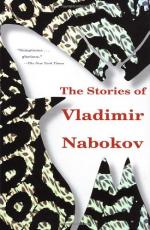|
This section contains 2,712 words (approx. 10 pages at 300 words per page) |

|
SOURCE: “Nabokov and Dostoevskii: Aesthetic Demystification,” translated by Arnold McMillin, in Russian Writers on Russian Writers, edited by Faith Wigzell, Berg Publishers, 1994, pp. 131-37.
In the following essay, Buhks discusses Nabokov's ambivalent critique of Dostoevski.
Nabokov's characterisation of Dostoevskii was both harsh and eccentric. With unwavering insistence throughout his whole life—in correspondence, conversation, interviews, lectures and in his own novels (Despair, The Gift and Look at the Harlequins!)—Nabokov called Dostoevskii ‘a mediocre writer of mystery stories’.1 The shockingness of this judgement has often drawn sharp reactions,2 been taken as an aesthetic provocation, and, in the context of Nabokov's literary behaviour as a whole, been deemed more of an artistic pose than an artistic position.3
Nabokov did not write much about Dostoevskii. We know two early verses, a lecture in Russian entitled ‘Dostoevskii without dostoevshchina’ given at an evening of the Union of Russian Writers in Berlin...
|
This section contains 2,712 words (approx. 10 pages at 300 words per page) |

|


